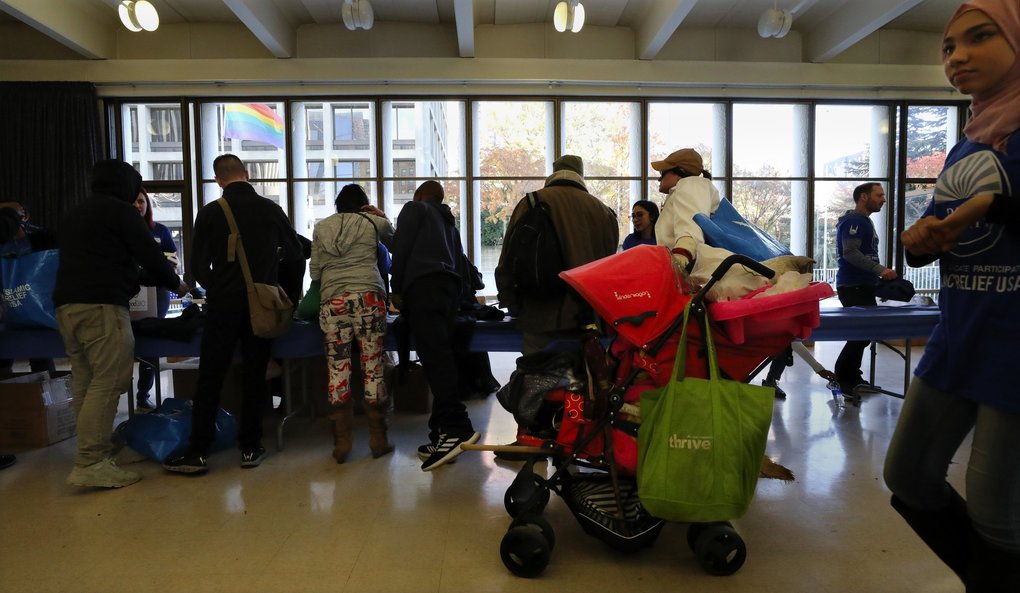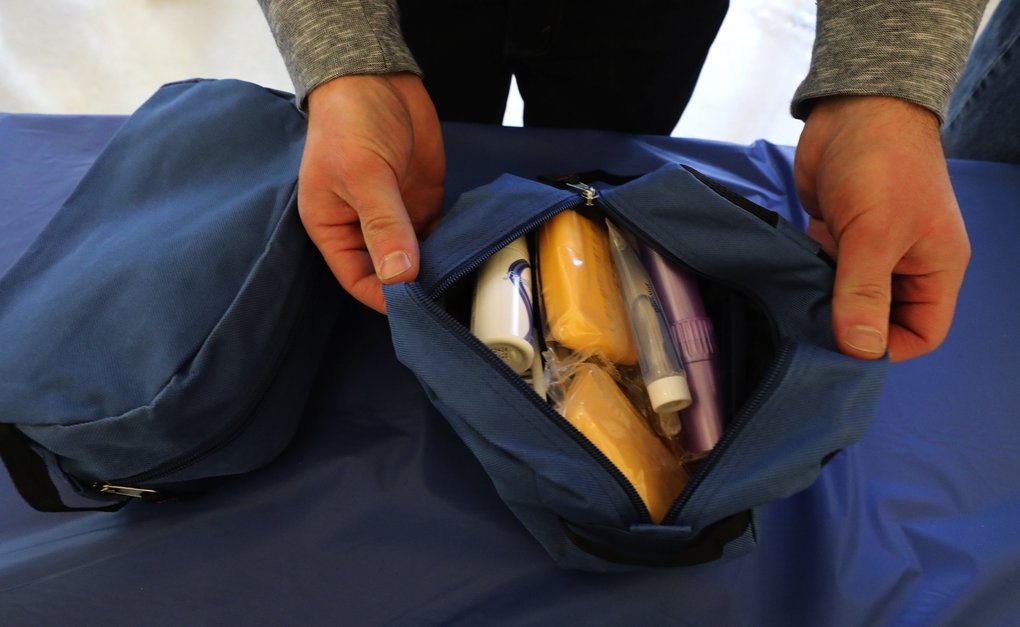For Aziz Junejo, the 14th annual “Day of Dignity” event, held on Saturday, was a unique one, being the first to be held at the Plymouth Church in downtown Seattle, Seattle Times reported.
“We’ve never had so many people before,” Junejo said, near the end of the four-hour event, previously held at the Millionaire Club.
“We’ve had well over 300 people.”
Holding the event for many years, Junejo approached Plymouth in hopes of starting an interfaith partnership.
Rev. Steven Davis, the executive minister of the church which hosts Muslims weekly prayer on Friday, welcomed the idea.
He offered Junejo free use of the same space where the Friday prayer is held and said members of his congregation may get more involved in future years.

More than 300 people got survival supplies at the event, which is in its 14th year. (Alan Berner / The Seattle Times)
At this year’s event, half-dozen barbers were giving haircuts, an acupuncturist was working to relieve aches and pains, and volunteers were handing out winter coats, backpacks and an array of other items.
Nearby, a medical station offered free HIV and other tests. Earlier, many had eaten a lunch of chicken and rice.
“This is such a well-loved event,” Muslim volunteer Maria Romero said.
“It’s something that’s really important to us as a family,” said Romero, who attended this event with her 24-year-old daughter Iman Romero.

Volunteers on Saturday gave out hygiene kits, among other items, such as warm clothes and backpacks. (Alan Berner / The Seattle Times)
Successful Event
For the homeless, the event was a much-needed before winter.
“I can’t believe it,” said Marjie Lill, who now lives in subsidized housing but used to be homeless.
She left the event with a puffy coat with a faux-fur-trimmed hood and a new backpack. She also got acupuncture to relieve a shoulder problem.
“My body feels a little better,” she said. “I’ll sleep tonight.”
Estimates of the number of Muslims in Seattle vary from 4,000 to 10,000.
As one of the five pillars of Islam, Zakat or ritual charity is a religious obligation for all Muslims who meet the necessary criteria of wealth. It’s a mandatory charitable contribution, the right of the poor to find relief from the rich, and is considered to be tax or obligatory alms.
In addition to the obligatory Zakah, Islamic Shari’ah also encourages giving in optional charity, called Sadaqah.